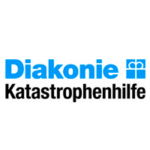Job Overview
-
Date PostedOctober 27, 2022
-
Location
-
Expiration date--
-
Experience5 Year
-
GenderBoth
-
QualificationAssociate Degree
-
Career LevelEntry-level to Mid-level
Job Description
- Note: This job description is for informational purposes only and is not intended for applications or applying.
Position Summary
GFFO/DKH-Yemen has programs with local partners across various sectors, including Health, Food Security, WASH, livelihoods and markets. When possible, Cash and vouchers are a preferred modality to achieve sectoral outcomes but also multi- purpose Cash (MPCA) is used to meet the needs of the most vulnerable families across the sectors. Currently DKH and Partners implement Cash for Work and UCT including MPCA interventions. Local partners have limited experience in CVA and plans to further develop CVA programming necessarily go hand in hand with further developing CVA capacity building.
Overall task of the CVA Consultant is to provide programmatic support to DKH Yemen Country Office (CO) and its partner organizations (PO) in the design and implementation CVA activities.
Through conducting a “Core CVA Skills for Programme Staff Training” for 5 working days for participants from DKH Yemen partner organizations.
The consultant works on equal footing with: DKH CVA Coordinator. The consultant will coordinate with the all the Programmes and support Team.
Conduct “Core CVA Skills for Programme Staff” training for DKH Partners:
Course Aim
To support participants to be able integrate CVA into the design, implementation and monitoring of humanitarian programming.
Objectives:
- Understand how CVA is guided by key policies, standards and guidelines.
- Describe how CVA needs to be integrated into role of different teams throughout the project cycle.
- Explain what assessment information is needed to inform response analysis.
- Use market information to inform modality choice.
- Understand how CVA can contribute to response objectives.
- Identify the information needed for monitoring and evaluation of CVA
- Identify how collaboration and coordination support quality CVA.
The training should at least cover:
CVA concepts
- Basic Principles and concepts of Cash and Voucher and Cash as one of three modalities (In kind/ services/ Cash).
- Cash in Sectoral areas and Sectoral experience as well as MPCA.
- Cash project cycle.
- Assessments & analysis leading to modality decision.
Needs assessment
- Market assessment (different methodologies including rapid assessments).
- Risk assessment and analysis.
- Response analysis.
Design and implementation
- Cash transfer and voucher processes, Delivery Modalities and Preconditions.
- FSP & Vendor identification and Selection also related to National Financial Infrastructure, FSPs and existing transfer mechanism.
- Cash transfer amount and frequency (including SMEB).
- Beneficiary Selection, Registration, verification criteria.
- Beneficiaries and Vendors training.
- Participation of beneficiaries/ communities and Feedback and complaint mechanism.
- Monitoring, evaluation, and learning.
Market Monitoring
- Post distribution Monitoring (PDM).
- Evaluation and Learning from Cash interventions.
- Extra session: CVA development in the partner organizations.
A session on needs of local partners related to strengthening CVA in their organization.
Organize a pre and post-test or any other tool to measure knowledge gained by the participants.
Organize a training evaluation by participants at the end of the training
Provide participants with a set of digital hand out and materials for further reference and to support roll out of knowledge within their organization.
Compile and submit a training report within one week after the training reflecting on training sessions and input, feedback during and evaluation of participations of the training, with signed participants list and assessment of increased knowledge of participants on CVA and recommendations to DKH to follow up on the training.
In case the Trainer is a certified CALP Cash trainer to provide CALP certificates to participants. Otherwise DKH will provide certificates.
Methodology
- DKH will provide a venue for the training of 25 participants including lunch and break.
- DKH will provide all stationary needed based on the proposal of the trainer.
- 5 training days, 8 hours a day.
Problem & context-based learning
- Tailor the training to the context in Yemen, discuss practical scenarios and country realities, use experiences/projects implemented by partners and lessons learned from those projects
- Participatory training methods such as brainstorming, group discussion, case analysis, and role-play
- Learning from each other: specific group exercises to be used to learn from each other exchanging and reflecting on past and ongoing experiences in CVA within the organizations and beyond in the region.
Location, Planning and Offer
Location and planning: CVA exact training dates to be confirmed in consultation with partners and chosen consultant. The aim is that training takes place in December 2022 in Aden.
Offer: the consultant will be offered an 8 days’ assignment: 2 preparation days, 5 training days, 1 reporting day. In case of necessary travel within Yemen a day can be added and DKH will cover travel and hotel costs for the consultant next to the day fee.
QUALIFICATION, EXPERTISE AND SKILLS
- CaLP Certified trainer is a strong advantage and will be taken in consideration.
- Experience with conducting CVA training with at least two similar CVA trainings conducted in the past three years.
- At least 5 years of relevant experience in leading Cash and Voucher Assistance programs activities, including Design, set-up, assessments, implementation, M&E, and closing including reporting.
- Experience in working in partnership with local NGO.
- Must have vast experience in conducting training for adults with participatory training methods, and in developing training programs and training documents. TOT/TOF certified.
- Must have excellent communication, facilitation and presentation skills.
- Excellent report writing skills.
- Languages: Fluent in written and spoken English and Arabic.




